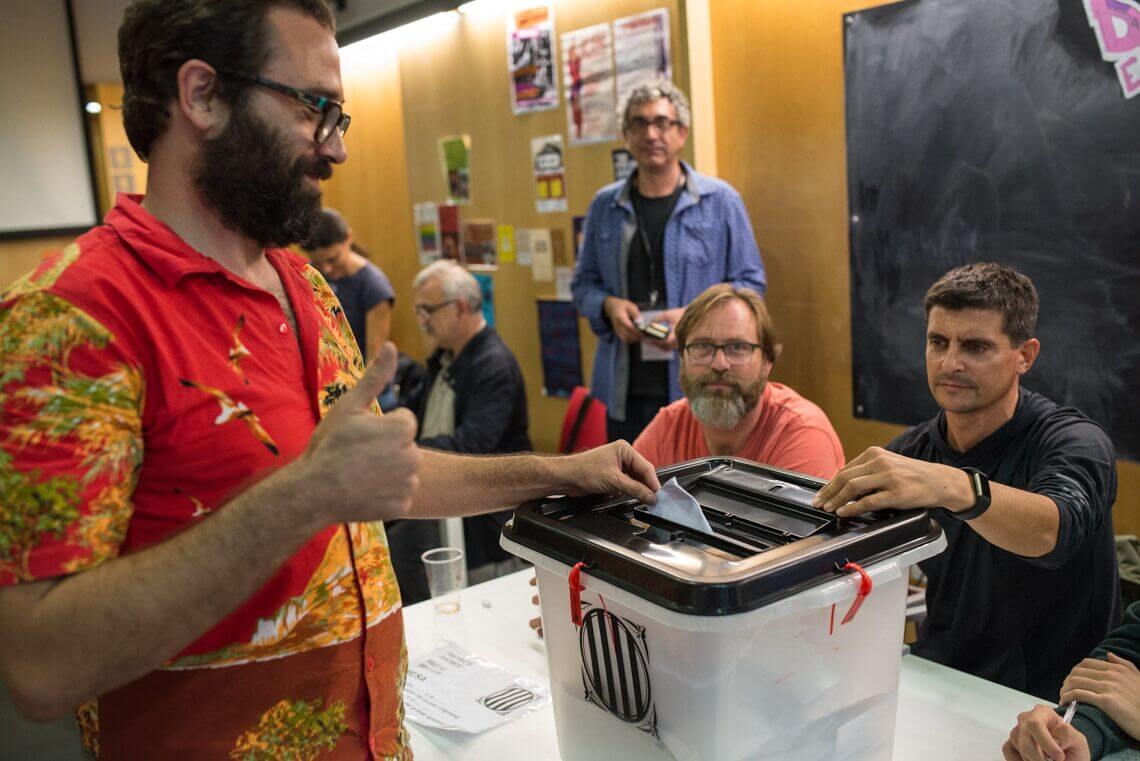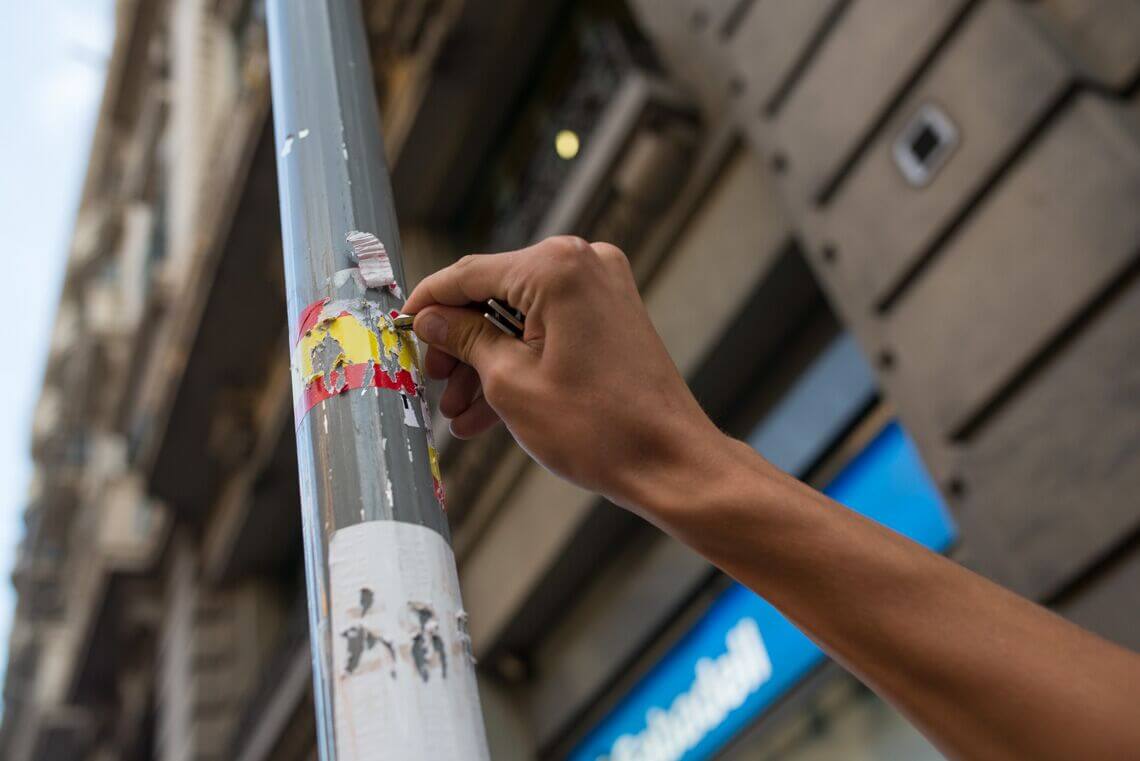The nation state is a relatively recent and contingent historical invention. It emerges sometime between the peace of Westphalia of 1648 and the French revolution of 1789, and it becomes the principal model of political organisation internationally only during the course of the twentieth century. With the turn of the millennium, it has entered an existential crisis: one that advances at once from above and from below.
the nation state is being challenged from below
On the one hand, European nations are increasingly unable to address the global challenges brought about by technological innovation, migration, climate change, or financial flows. Even more, the perseverance of national divisions and reciprocal vetoes leads to a worsening of policy choices and a narrowing of democratic spaces for all. This is dramatically evident in the European Union: where the inability to construct a transnational democracy leads to dysfunctional economic policies, lack of any credible policy on migration, tax competition between states and a race to the bottom on workers’ rights.
On the other hand, the nation state is being challenged from below. From Barcelona to Naples, citizens increasingly demand the right to greater participation in the decisions that affect their lives. The new municipalist experiences of Spain, placing citizen participation at their centre, testify to this demand. The European Union calls this ‘subsidiarity’. One of the most celebrated theorists behind Barcelona en Comu, Joan Subirats, calls it the sovereignty of proximity.

“Take back control”
“Take back control” was of course one of the slogans of Brexit and one that resonates also in Catalunya these days. But to take back control we need neither to retreat to existing nation-states nor to replicate the nation state’s authoritarian structures at a smaller, regional level.
Of course, in Catalunya a binding referendum is now a sheer democratic necessity. But why should we be limited to choosing the Spanish national status quo or the replication of that status quo at the Catalan level? Could it not be an opportunity for us to use this crisis to ensure that more and better democratic options arise?

A convincing solution would allow for a direct relation between the European and the local level
Concretely, we need to review the division of powers between the local, national, and European levels. It is time that some competencies be given back to regions and municipalities, promoting a real democracy of proximity. This is true for Spain as much as for a potential new Catalan state: will it provide innovation in terms of empowering citizens through their municipalities and citizens platforms or will it replicate the same top-down logic of the traditional nation-state?
Some competencies have to become clearly European, promoting a genuine transnational democracy. For there is no “taking back control” without constructing a European public space able to return citizens’ democratic sovereignty over the big decisions that escape national borders – or that currently frustrate citizens’ demands for a different economic model precisely by pitting nation against nation, such as in the context of multinational tax evasion.
Innovative reshuffle
Finally, some competencies have to overlap in innovative ways. Take the management of the refugee situation, where cities like Madrid or Barcelona would gladly welcome refugees – and in this way comply with European legislation – while the national government of Spain, just like that of Poland or Hungary, is determined to block relocations.
A convincing solution would allow for a direct relation between the European and the local level, with the EU guaranteeing investment in sustainable integration and cities being handed the powers and competencies to take in refugees independently of their national government. Why should Rajoy – or Puigdemont, for that matter – frustrate Barcelona’s desire to welcome? An idea along these lines is already being put on the table by former German presidential candidate Gesine Schwan.
But beyond a reshuffling of competencies, we need to imagine a system upgrade of all our constitutions. We need to allow not only for greater autonomy but also for appropriate institutional representation, to engage local authorities in policy-making. Think of a chamber representing regions and metropolitan areas in the national parliaments.
And equally at European level: for if the European Council serves to represent national governments and the European Parliament is meant to represent the common interests of citizens, then the time is surely ripe for a European Chamber of Cities and Regions, representing the territories and cities of Europe and acting as a democratic guarantor of, among other things, fiscal solidarity. We should take up Benjamin Barber’s idea of a global parliament of mayors and bring this to the heart of the debate on reforming the EU, as recently advocated also by Ulrike Guerot.
Imagine
Part of the reason for the crisis of democracy in Europe is our collective inability to imagine and implement new political and democratic models. We live in extraordinary times, when everything is shifting under our very eyes. In times like these we need to have the courage and the ambition to relinquish our old convictions and our old institutions and begin preparing the world of tomorrow.
**
This article was first published on openDemocracy
Transeuropa, the biennial festival of European Alternatives, takes place 25-29 October in Madrid, taking forward this conversation on the future of the nation state.
![Political Critique [DISCONTINUED]](https://politicalcritique.org/wp-content/uploads/2015/09/Political-Critique-LOGO.png)
![Political Critique [DISCONTINUED]](https://politicalcritique.org/wp-content/uploads/2015/09/Political-Critique-LOGO-2.png)